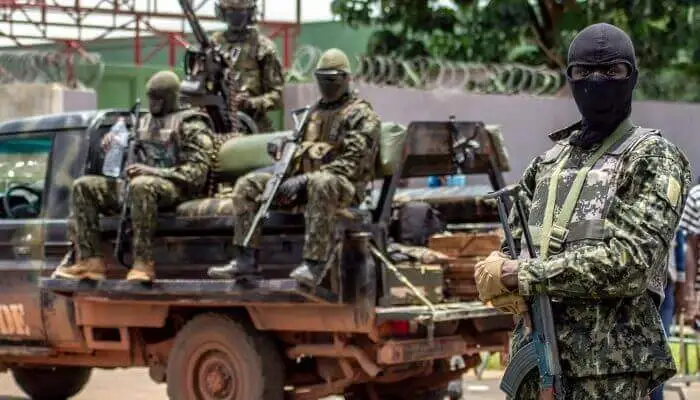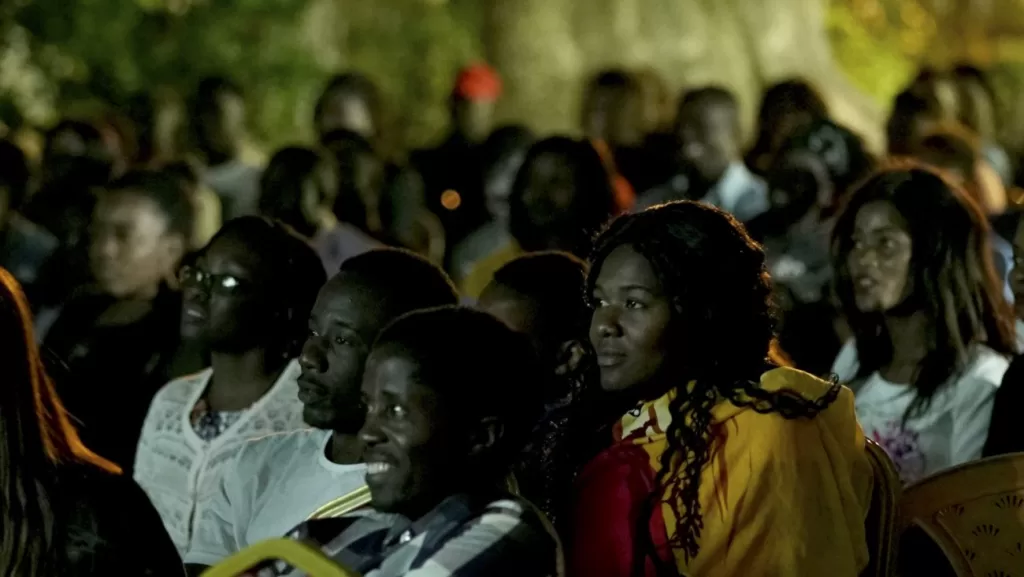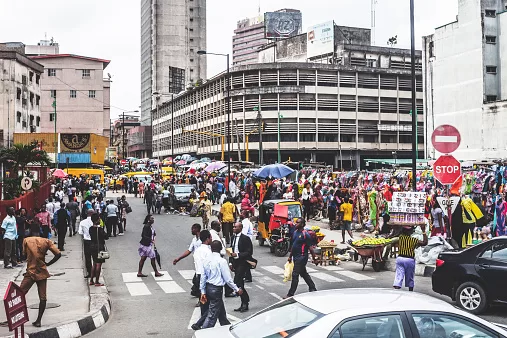Here, we attempt to unravel why the African military are staging coups against democratic governments. Across the African continent, a disconcerting trend is taking root: resurgent military coups. While political stability is a fundamental cornerstone for progress and development, Africa has witnessed a resurgence of military interventions that have left many nations grappling with the unsettling reality of democratic backsliding. This disquieting phenomenon has found its epicentre in West Africa, where a series of recent coups have shaken the region’s political landscape. To understand this trend, it’s imperative to embark on an in-depth exploration of the intricate web of historical factors, neocolonial influences, and domestic political dynamics that have led African military forces to stage coups against duly elected leaders.
The complex tapestry of factors contributing to this wave of military coups includes the legacy of colonialism, which has left lasting scars on the continent. Despite gaining independence, many African nations continue to grapple with neocolonial influences, which were covertly exercised by former colonial powers. These influences manifest through economic dependencies, external manipulation of local politics, and power imbalances that leave nations susceptible to external interference. This lingering neocolonial grip fuels instability and undermines the pursuit of genuine sovereignty, perpetually entangling African nations in a struggle for self-determination.
Furthermore, domestic political dynamics play a pivotal role, with weak democratic institutions, ethnic divisions, and power struggles creating an environment ripe for military intervention when incumbent leaders either fail to address these critical issues or manipulate the political system to their advantage. The rise in corruption, economic mismanagement, and resource misallocation erodes public trust in democratic leaders, fostering a sense of disillusionment among citizens who perceive their leaders as self-enriching at the nation’s expense. This disillusionment, in turn, creates a fertile ground for those who view military intervention as the remedy to rectify perceived democratic deficiencies.
Here are some common reasons why African military are staging coups against democratic governments;
Political Instability
Political instability remains a persistent challenge across many African nations. This instability often arises from the presence of weak democratic institutions that struggle to maintain a robust political order. Weaknesses in these institutions, including a lack of checks and balances, provide fertile ground for power imbalances and political manipulation. Ethnic divisions further exacerbate the instability, as they can be exploited by incumbent leaders for political gain. When these leaders fail to address these underlying issues or instead manipulate the political system to their advantage, it creates an environment conducive to military intervention.
The power struggles within these nations are often exacerbated by leaders who prioritize their own interests over the broader well-being of the country. The consolidation of power in the hands of a few can lead to disenfranchisement among various segments of the population, creating a sense of grievance and frustration. In such a climate, military forces may perceive themselves as the last resort to restore order and protect the nation’s stability. This cycle of political instability fueled by weak democratic institutions and power struggles highlights the complex interplay of factors that contribute to military coups in Africa.
Corruption and Mismanagement
Corruption and mismanagement represent another significant factor contributing to the propensity for military coups in Africa. High levels of corruption, where public officials engage in graft and embezzlement, undermine trust in democratic leaders. Citizens who witness their leaders amassing wealth at the expense of the nation’s development become increasingly disillusioned. This disillusionment fosters dissatisfaction among the populace, ultimately creating a receptive audience for the idea that military intervention could be a viable solution to break the cycle of corruption and mismanagement.
Economic mismanagement and resource misallocation further exacerbate these issues, as they hinder economic growth and development. Scarce resources that should be invested in critical public services, infrastructure, and education are diverted for personal gain, exacerbating social inequalities. In the face of such perceived exploitation by civilian leaders, the military may be seen as a potential saviour, poised to address these pressing issues and restore public faith in governance. Consequently, public dissatisfaction and disillusionment with corrupt and inefficient civilian leadership can fuel support for military intervention as a means to rectify perceived democratic deficiencies and restore economic prosperity.
Weak Democratic Institutions
In several instances, African democracies grapple with underdeveloped institutions critical to the democratic process. The lack of a robust and independent judiciary and an impartial electoral commission significantly undermines election credibility. When these institutions are compromised or perceived as partial, it erodes public trust in the electoral process. The result is a situation where the military perceives itself as a guardian of stability, stepping in to ensure a fair and transparent electoral environment. In this context, military intervention is seen as a necessary measure to restore faith in the democratic process and uphold the rule of law.
Ethnic and Regional Tensions
Ethnic and regional divisions are a potent driver of political instability in many African nations. These divisions can be exploited by leaders for political gain, and when this occurs or when these leaders fail to effectively address such divisions, it can lead to unrest. The manipulation of ethnic and regional tensions can polarise societies, further fragmenting the political landscape. In response to growing instability and the potential for violence, military intervention may be perceived as a means to restore order. Paradoxically, while the military intervention may aim to quell unrest, it can also inadvertently exacerbate tensions, plunging the nation into further turmoil.
Military Interests
In specific African countries, the military wields significant political influence and has vested interests in maintaining political power and securing access to valuable national resources. Threats to these interests or a perception that the military can better safeguard national interests can serve as triggers for coups. This alignment of military power with political and economic interests creates a volatile mix, where the military sees itself as the protector of the nation’s stability and prosperity. Consequently, threats to these interests can lead to swift and decisive military intervention to preserve their privileged position within the country’s power structure.
External Factors
External actors, such as foreign governments and international organisations, play a pivotal role in shaping African political developments. Their support or opposition to incumbent leaders can significantly influence the likelihood of coups. Geopolitical interests often underpin these external interventions, as foreign governments may seek to advance their agendas or secure access to valuable resources. This external influence further complicates the internal dynamics of African nations, making them susceptible to external pressures that can impact their political stability and legitimacy.
Historical Precedent
In some nations, a history of military involvement in politics has entrenched coups as a recurring feature of the political landscape. This historical backdrop creates a cycle of instability where military intervention becomes an accepted means of addressing political grievances. The perception that coups have been successful in the past in correcting power imbalances and corruption can perpetuate this cycle, making it difficult to break free from the grip of military interventions.
Perceived Weakness of Civilian Leadership
Military leaders may view civilian leaders as ineffective in addressing pressing national challenges, such as security threats or economic crises. This perception prompts military intervention, driven by the belief that the military can provide more effective governance and solutions to these critical issues. While this intervention is often framed as a means to restore stability and protect national interests, it frequently undermines democratic principles and norms, resulting in a complex web of consequences for the nation’s political future.

















